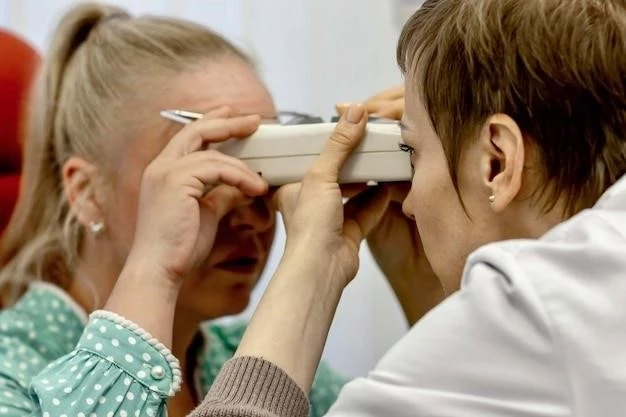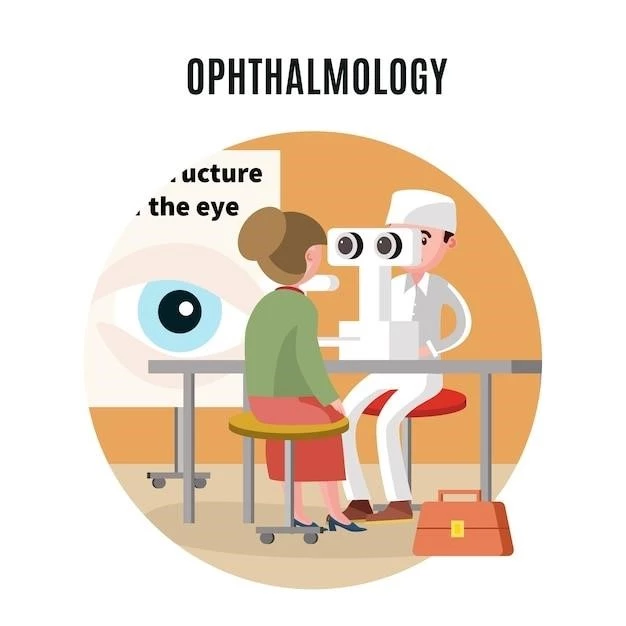Introduction to Retinitis Pigmentosa-Deafness
Introduction⁚ Retinitis pigmentosa-deafness is a condition encompassing a group of disorders with a historical background dating back to 1853. RP is a degenerative disease affecting the retina and often associated with hearing loss or deafness, as seen in Usher syndrome.
Retinitis pigmentosa (RP) was first described in 1853 and officially named in 1857. It is a group of disorders affecting the retina, with the term ″retinitis″ being somewhat misleading as inflammation plays a small role. RP is not a single entity but a collection of diseases causing gradual vision loss. Usher syndrome, often associated with RP, is a genetic disorder combining vision and hearing impairments.
Understanding Retinitis Pigmentosa and Deafness
Retinitis pigmentosa (RP), initially described in 1853 and formally named in 1857, is a degenerative disorder affecting the retina. This condition, often associated with hearing loss or deafness, can manifest in various forms, including Usher syndrome, a genetic disorder combining vision and hearing impairments.
Definition and Historical Background
Retinitis pigmentosa (RP) is a degenerative disorder affecting the retina, with the term ″retinitis″ somewhat inaccurately implying inflammation’s role. It was first described in 1853 and officially named in 1857. RP is a group of disorders causing gradual vision loss and often associated with hearing loss or deafness, as seen in Usher syndrome.
Genetic Basis of the Condition
The relationship between Retinitis Pigmentosa and Deafness is often genetic. Usher syndrome, a common form of this condition, is caused by mutations in genes essential for both vision and hearing. In Usher syndrome, the genetic basis involves defects in the proteins crucial for the function of sensory cells in the retina and inner ear, leading to the characteristic combination of retinal degeneration and hearing loss.
Usher Syndrome⁚ A Common Form of Retinitis Pigmentosa-Deafness
Usher syndrome is a genetic disorder characterized by hearing loss and progressive vision loss due to retinitis pigmentosa. It is the most common condition affecting both hearing and vision, often starting in early life and affecting individuals’ quality of life.
Overview of Usher Syndrome
Usher syndrome is a genetic disorder characterized by the combination of sensorineural hearing loss and progressive vision loss due to retinitis pigmentosa. This condition, which often presents in early life, affects the quality of life of individuals by impacting both their auditory and visual senses. Usher syndrome is a significant example of syndromic retinitis pigmentosa-deafness, emphasizing the intricate relationship between these sensory impairments.
Usher syndrome, a genetic disorder, manifests with sensorineural hearing loss alongside progressive vision loss attributed to retinitis pigmentosa. The symptoms of Usher syndrome typically present in early life, impacting an individual’s ability to hear and see gradually over time.
Clinical Manifestations of Retinitis Pigmentosa-Deafness
The clinical manifestations of retinitis pigmentosa-deafness include a bilateral degeneration of the retina and retinal pigment epithelium, often leading to gradual vision loss and varying degrees of hearing impairment. Conditions like Usher syndrome highlight the complex interplay between visual and auditory impairments.
Symptoms and Progression
Usher syndrome, a genetic disorder, typically presents with sensorineural hearing loss and progressive vision loss attributed to retinitis pigmentosa. The onset of symptoms often occurs in early life, with individuals experiencing a gradual worsening of both auditory and visual impairments over time.
Visual Impairments Associated with the Disease
Visual impairments in retinitis pigmentosa-deafness involve a gradual bilateral degeneration of the retina and retinal pigment epithelium, leading to progressive vision loss. Usher syndrome, a common form of this condition, exemplifies the complex interplay between visual and auditory impairments, emphasizing the challenging nature of managing patients with combined sensory deficits.

Diagnostic Approaches for Retinitis Pigmentosa-Deafness
Diagnostics for retinitis pigmentosa-deafness involve audiologic and ophthalmologic evaluations to assess hearing and vision impairments. Genetic testing and counseling play a crucial role in identifying the underlying genetic mutations associated with this condition.
Audiological and Ophthalmological Tests
Diagnostic assessments for retinitis pigmentosa-deafness involve audiologic evaluations to examine hearing loss and ophthalmologic tests to assess vision impairments. These tests play a vital role in identifying and understanding the sensory deficits associated with this condition.
Genetic Testing and Counseling
Genetic testing is a crucial diagnostic approach for retinitis pigmentosa-deafness, helping identify specific genetic mutations linked to the condition. Counseling provides individuals with informed guidance on the inheritance pattern, the risk of passing the condition to offspring, and available management strategies.
Treatments for retinitis pigmentosa-deafness include therapeutic interventions targeting visual impairments like Usher syndrome. Additionally, rehabilitation programs and support services play a key role in managing the challenges associated with this complex condition.
Current Treatments and Management Strategies
Therapeutic interventions for retinitis pigmentosa mainly target visual impairments like those seen in conditions such as Usher syndrome. Rehabilitation programs and support services also play a crucial role in assisting individuals in coping with the challenges associated with this multifaceted condition.
Rehabilitation and Support Services
Rehabilitation and support services play a critical role in assisting individuals with retinitis pigmentosa-deafness in coping with the challenges of their condition. These services aim to improve the quality of life, enhance independence, and provide resources for managing both visual and auditory impairments effectively.

Research and Advances in the Field
Promising developments in gene therapy are revolutionizing the treatment landscape for diseases like retinitis pigmentosa-deafness. Clinical trials and ongoing research present hopeful avenues for improved management and potential future interventions to address the genetic basis of this condition.
Promising Developments in Gene Therapy
Recent advancements in gene therapy show great promise in revolutionizing the treatment of retinitis pigmentosa-deafness. These innovative approaches aim to address the underlying genetic mutations associated with the condition, offering hope for improved therapeutic outcomes and potential future interventions.
Clinical Trials and Future Directions
Currently, on the topic of ″Disease⁚ Retinitis pigmentosa-deafness,″ several sources provide valuable information regarding the condition. From historical descriptions dating back to 1853 and the term ″retinitis″ persisting despite its limited role in inflammation to the exclusion of linkage to specific chromosomal regions associated with retinitis pigmentosa-deafness, the genetic relationship and characteristics of Usher syndrome are highlighted. This syndrome is known for its genetic basis, causing sensorineural hearing loss and progressive vision loss linked to retinitis pigmentosa. Additionally, clinical manifestations of bilateral retinal degeneration and pigment epithelium degeneration progressively causing visual impairments in retinitis pigmentosa-deafness are discussed.
Moreover, various genetic syndromes, including Usher syndrome, are characterized by this multifaceted condition, underlining the importance of diagnostic approaches like audiologic and ophthalmologic evaluations and genetic testing. Therapeutic interventions and rehabilitation programs are pivotal in managing the challenges posed by this complex disease. Recent advances in gene therapy are revolutionizing the treatment landscape, offering hope for enhanced therapeutic outcomes. Clinical trials and ongoing research point towards potential future interventions addressing the genetic mutations associated with this condition.
